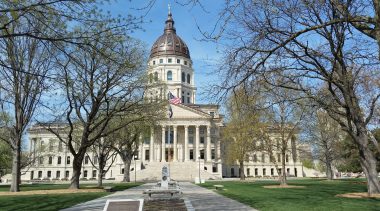Raheem Williams has contributed to the Pension Integrity Project's research.
At Reason, Williams has contributed to in-depth analysis of the Florida FRS, North Carolina TSERS, and North Dakota PERS pension systems. Williams also co-authored a study of defined contribution plans as part of Reason’s ongoing Gold Standard In Public Retirement System Design series. He has presented testimony before the North Dakota House of Representatives Government Veterans Affairs Committee on House Bill 1209 and Senate Bill 2046.
Williams’ work has appeared in The Orlando Sentinel, Carolina Journal, The Grand Forks Herald, South Florida Sun Sentinel, The Florida Times-Union, and Townhall Finance.
His work has been published by The Foundation for Economic Education and The John Locke Foundation.
Previously, Williams worked as an economic research specialist with The Center for the Study of Public Choice and Private Enterprise at North Dakota State University.
He completed his undergraduate degree in economics at Florida International University in Miami, FL, and his Master’s in Financial Economics at the University of Detroit Mercy.
-
The Future of North Dakota Pension Reform
North Dakota should adopt pension reform that reduces long-term risk for taxpayers and maintains attractive retirement options for state workers
-
The Florida Retirement System Is Still in Need of Reform
This analysis considers how policymakers can address the Florida Retirement System's $36 billion debt, control rising pension costs and provide a secure retirement for public employees.
-
Hollywood, Florida’s Pension Debt Problem
Hollywood, Florida has over $1 billion in public pension and retiree health care debt.
-
North Dakota Should Prioritize Paying Down Pension Debt
To pay off current and future NDPERS debt a switch to a defined contribution plan should be paired with implementing a viable funding strategy.
-
Florida’s $36 Billion Problem
Florida's growing pension debt is particularly bad news for other state spending areas like education and transportation.
-
Pension Funds Should Reject Politically Motivated Divestiture
Divestiture policies based on political interests extend beyond the role of public pension fund managers and are very unlikely to accomplish the intended outcome.
-
For Two Decades, North Dakota Has Failed to Properly Fund Its Public Pensions
NDPERS' funded ratio was only 72 percent, with $1.2 billion in pension debt, in July 2019.
-
Instead of Boasting, Florida Should Be Bracing for Bad Pension News and More Debt
If FRS’ investment returns come in at -5 percent for this fiscal year, FRS' unfunded liabilities could grow to $47 billion.
-
Massachusetts’ Legislature Should Help Gov. Baker Make Good on Pension Promises
Gov. Baker is right to push for public pension contribution increases in his budget, but elected officials in Massachusetts need to understand that this should be just the start of pension reforms.
-
More Pension Debt Revealed As Florida Lowers Assumed Rate of Return to More Realistic Levels
Missing the mark on investment return assumptions has added $17 billion to the Florida Retirement System's unfunded liability over the past decade.
-
The Florida Retirement System Is Being Mismanaged In a Variety of Ways
The Florida Retirement System (FRS) is $29.8 billion in debt and has just 84 percent of the funding it needs to pay for retirement benefits.
-
The Debate Over Pension Debt and Government Spending in Kansas
KPERS may be substantially overestimating the value of its assets and underestimating its current pension debt.
-
Birmingham’s Pension Woes Continue to Compound
Fitch Ratings downgraded Birmingham's issuer default rating and general obligation bond ratings to A+ from AA-.
-
Kansas Pension Proposal Would Add Long-Term Costs, Debt
Gov. Kelly’s plan could also further exacerbate the fiscal impact of the system's overly optimistic investement assumptions.
-
Birmingham Mayor Urges His City Not to Ignore Its Growing Pension Problems
"Please understand, if we do not take definitive action now, the city will face widespread financial problems. The city’s credit rating will likely be lowered, creating an even greater challenge in fully funding the pension."
-
The Iowa Public Employees Retirement System Needs More Than a Year of Solid Returns
IPERS’ unfunded accrued liability grew from $441 million in fiscal year 2001 to $6.97 billion in fiscal year 2017.
















